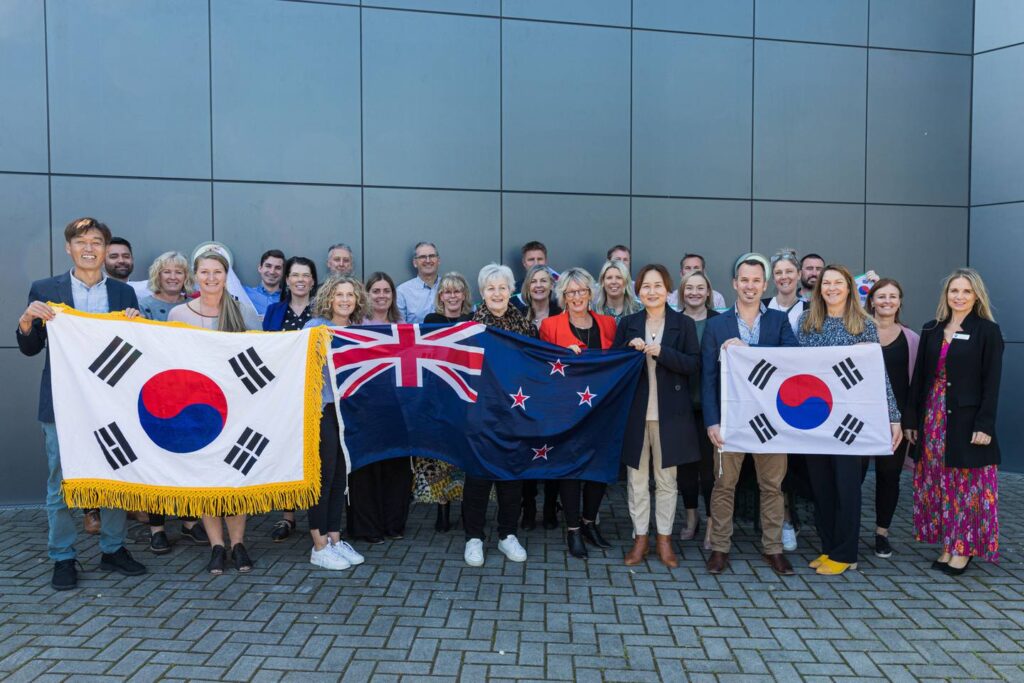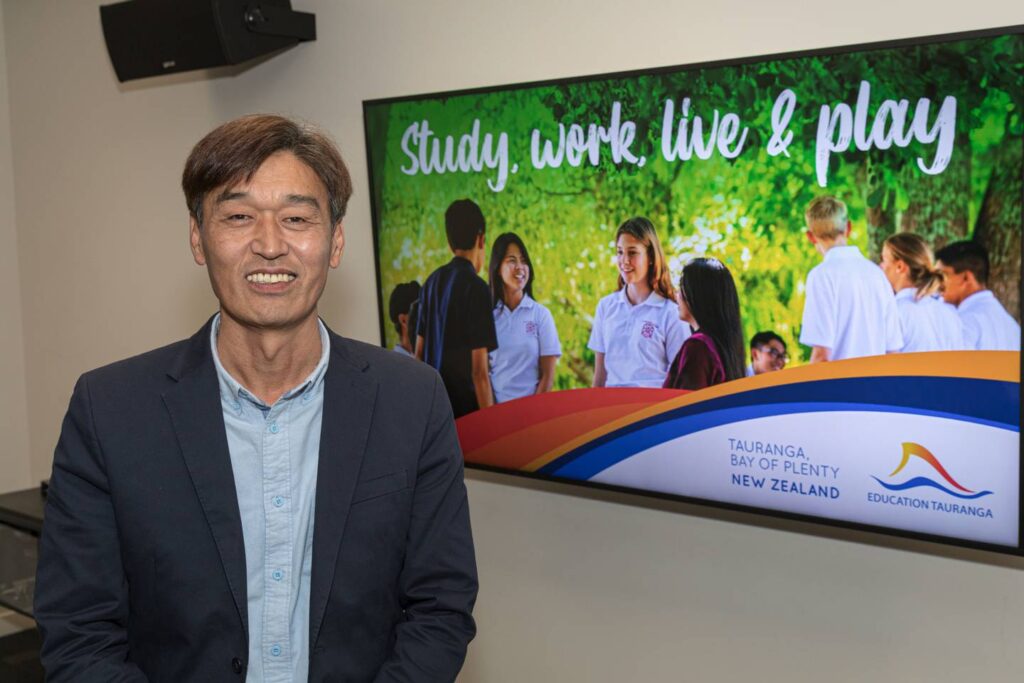Latest News
The arrival in Tauranga of about 100 international students from Korea between October and January is expected to boost the local economy by millions of dollars.
A delegation of 23 Western Bay primary and secondary schools and Waikato University representatives will travel to South Korea next month to showcase the region’s education opportunities for the first time since 2020.
The week-long trip will include a visit to the New Zealand Embassy in Seoul where they will be hosted by Philip Turner, New Zealand’s Ambassador to the Republic of Korea (South Korea).
Hyun Taek Yang, director of education agency Tauranga Korean Times, said he expected the delegation to meet with more than 300 families during their one-week stay.
“We are hugely excited to recommence our face-to-face relationship, bringing our message that Tauranga is an excellent place for Korean families who are attracted to the relaxed lifestyle and easy access to outdoor activities we have here.”
Yang said families coming to Tauranga through the programme generally stayed for two or three years, and contributed about $20 million per year into the local economy.
On average, a single family will spend around $100,000 per year on various costs associated with setting up a home and taking part in tourism activities, he said.
“We are so excited.”
Yang said about 16 Korean families were already studying short-term in Tauranga and he expected another 16 to arrive in October.
“We expect more than 40 new Korean families with 60 students will come to Tauranga in December and January for two or three years long-term to study at local schools.
“So we can say about 70 new Korean families with 100 international students will arrive in Tauranga between October to January 2023.”
Tauranga Korean Times and Education Tauranga have been hosting the education fair in Korea for more than 10 years.
“Korean families love Tauranga because they can give their children a world-class education in a tight-knit and relatively small community of welcoming people.
“Our programme is important because it attracts migrant communities to regional New Zealand – most migrants end up living in Auckland.
“This is a great opportunity for prospective families to meet New Zealand school representatives in Korea.”
Education Tauranga’s immersion policy, where one international student per country was placed in each class (years 1-8), helped students practise English and make genuine, authentic connections with their Kiwi classmates, he said.
“We are excited to return and spread the word – ‘come to Tauranga’.”
Melissa Gillingham, Education Tauranga’s regional relationship manager, said about 70 families had been invited to an alumni event on one of the first days.
“Having closed borders for the last few years, there will be some nice reunions for them.”
Gillingham said the delegation had travelled to Korea about 12 times before Covid-19 hit in 2020.
“We are all really excited to be going offshore again together to promote the beautiful city of Tauranga and welcoming Korean families back into our local community and into our schools.
“They bring so much to our city and our community socially, culturally, and economically.
“I think they have really missed out having those friendships and interactions over the last couple of years. There is a lot to be reignited again.”
Gillingham said the trip was a real first-hand insight into Korean culture and helped them understand what the families had left behind to come to New Zealand.
“It is really good for us to see what their life is like and to understand them better so we can help integrate them into our life and culture as well.”

Anne Young, University of Waikato Tauranga campus regional manager, said the university had about 20 Korean students enrolled across its Hamilton and Tauranga campuses.
“We know international student applications, in general, have increased. That is partly because of New Zealand’s response to Covid.
“New Zealand is still really sought after as a world class education destination.
“We are really well known for the quality of our pastoral care and our dedication to being inclusive for all students. I think that is why students are continually attracted to come here.”
Young said it was an opportunity to reconnect with Korean students and show the education pathways that existed in Tauranga from primary and secondary school through to tertiary education and employment.
“We are showing we can cater for all students at all levels and that the relationships exist between the education institutions to make it as simple as possible.”
Mount Maunganui Primary School principal Damien Harris said this was about his eighth time as part of the delegation.
“It has a two-fold benefit. It is a great chance to reconnect with previous students. They are such a big part of life while they are here, it is great to be able to see how they are getting on at home. And to meet new families and get to know them a little bit before they actually choose to come here.”
Harris said about six pupils had enrolled at the primary school for this term and into next term.
“The key driver is a chance for our Kiwi kids to make Korean friends and Korean kids to make Kiwi friends.
“We have one student who has been away for about eight months and is returning and has actually been in touch with her friends the whole way through … That is an example of the long-term connections they make.”
Tauranga Boys’ College’s international director Annette Roff said the families became part of the local community.
“We can all grow an understanding of each other’s cultures, and learn from each other to ensure that, as schools, we provide a welcoming and inclusive experience for all families.
“It is really satisfying to see the relationships our students and their families form in Tauranga.
“I have been lucky to attend events where we get to learn about Korean food, art, and culture and it is a fantastic way for our community to gain an understanding of different cultures – this allows us to build meaningful relationships that will continue to develop over time.”

